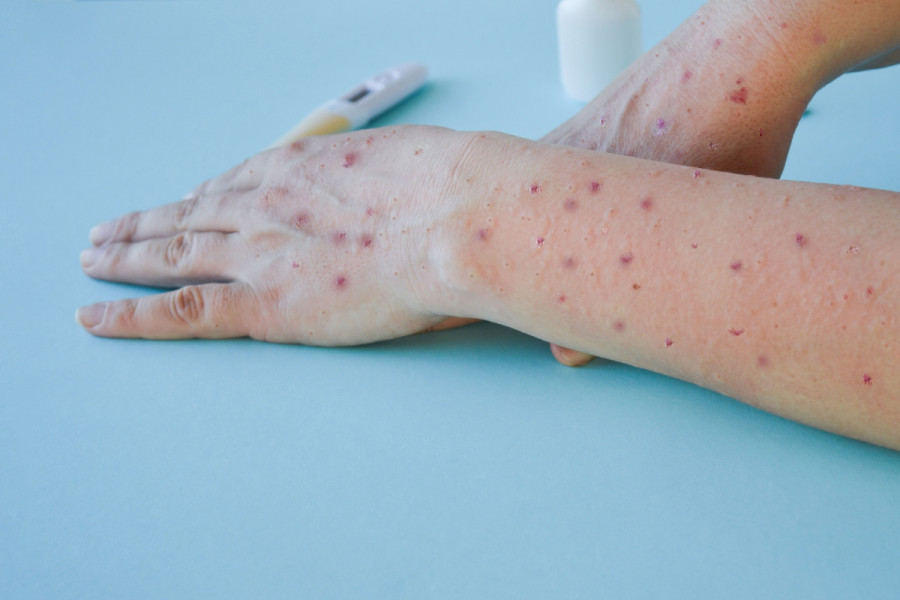Columns
Worried about mpox? No need to
Declaring mpox as a public health emergency of international concern in 2022 seems unjustifiable.
Dr Sher Bahadur Pun
Nepal reported its first case of mpox, also known as monkeypox, in a 60-year-old woman two weeks ago. This came shortly after the World Health Organization declared an end to it as a public health emergency of international concern on May 11, 2023. Since then, however, no further mpox cases have been reported here.
For the first time, mpox showed sustained human-to-human transmission through sexual contact in the United Kingdom and worldwide. So far, there is no evidence to suggest transmission of mpox from monkeys or other animals to humans outside of Africa. Hence, I propose to call it “sexually transmitted pox virus” or “STpox virus,” as the patients develop “pox” or “skin eruption” after sexual contact. To avoid negative effects on trade, travel, tourism, animal welfare and cultural, national, social, regional, professional or ethnic groups, the WHO changed the name of the virus from "monkeypox" to "mpox" on November 28, 2022.
Human mpox was first reported in 1970 in the Democratic Republic of the Congo. However, it was named monkeypox because it was first detected in 1958 in monkeys kept for research. According to the WHO, the infection can spread through touch, kissing, sexual contact, animals, and contaminated material like sheets, clothes and needles. It can also transmit from pregnant mothers to their unborn babies and through respiratory droplets or short-range aerosols from prolonged close contact. Despite these potential transmission routes, there haven’t been any significant outbreaks of monkeypox in any communities or countries.
In India, the community spread of mpox was first reported in a patient in July 2022, with no travel history to countries affected by this viral infection or known to be endemic. However, no massive outbreak of mpox has been reported there since. According to the Centers for Disease Control and Prevention (CDC) of the USA, as of June 21, 2023, a total of 22 confirmed cases of mpox, including one death, have been reported in India. This suggests that through the above-mentioned routes (except sexual contact), the mpox virus cannot easily spread between people.
People with multiple sexual partners are at a higher risk of contracting the mpox virus. Studies have found that the majority of mpox patients were found to be involved in sexual activities, and the findings of genital, anal and oral mucosal lesions supported the strong likelihood of sexual transmission. A recent study published in the New England Journal of Medicine on August 25, 2022, revealed that 98 percent of the patients were non-heterosexual, and 95 percent had a history of close sexual contact. A large proportion of mpox cases diagnosed in the UK were found among non-heterosexual men, making it advisable for them to receive the vaccine to protect against this infection.
Mpox cases are unlikely to be reported accurately, particularly in Asian countries. This may be due to hesitations surrounding talking about genital or sexual health issues. As a result, in Nepal, sexually transmitted infections (STIs) remain one of the main public health problems. Likewise, every year, hundreds of Nepali youths planning to go abroad for employment are found to be infected with STIs, such as syphilis, during routine laboratory examinations. Most do not have a history of hospital visits, even if symptoms appear. People may not go to health care centres even after developing skin lesions (rashes) in and around genital and anal areas.
Moreover, many dermato-venerologists are unaware or reluctant to send samples of suspected mpox cases to confirm the virus. Mpox usually recovers fully in 2–4 weeks without hospitalisation for most mpox-infected patients. Several studies have also shown that most hospitalised patients did not show serious health issues due to mpox.
Mpox has been circulating in humans in Africa for at least 50 years and continues to cause illness and deaths, with a fatality rate as high as 11 percent. Despite this, WHO declared it a public health emergency of international concern only after it spread in high-income countries. Studies indicate that the current mpox virus has a lower fatality rate than the one previously spreading in Africa. Therefore, the reason for declaring mpox a public health emergency of international concern in 2022 seems unjustifiable.
Diseases in Africa do not receive attention until they spill over to high-income countries. Moreover, the West African clad (subtype Clade IIb), the causative agent of the current world outbreak of mpox (spreading beyond Africa), was found to be far less clinically severe than the original mpox virus version in Africa. Thus, mpox, currently circulating worldwide, should be considered another dermato-venerology disease, and there is no need to panic over this virus.




 17.9°C Kathmandu
17.9°C Kathmandu















